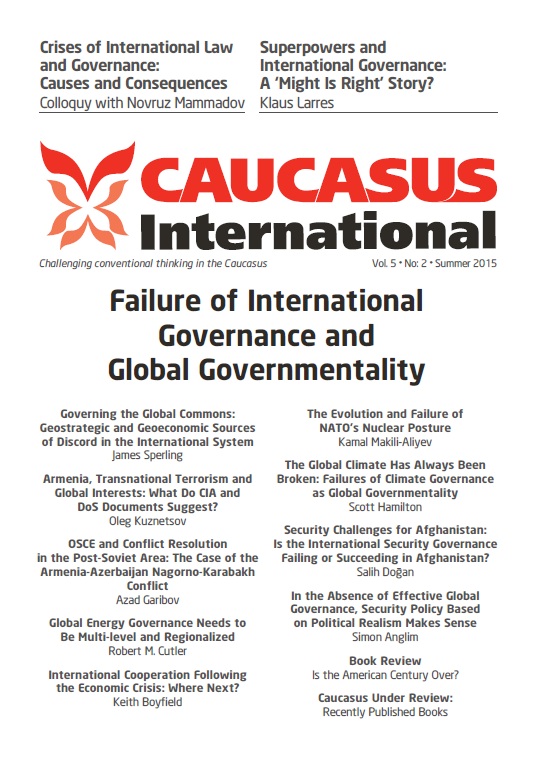The Global Climate Has Always Been Broken: Failures of Climate Governance as Global Governmentality
International climate governance is commonly referred to as a failure, due to the inability of states to take substantive action against anthropogenic global climate change. This raises an important question: if international collective action is required so as to heal, fix, or prevent further damage to the global climate, have we ever had a concept of the global climate that was not damaged, broken, or in need of international governance? This article argues that we have not. Today’s naturalized concept of a ‘global’ climate emerged in international relations only as recently as the late1980s, framed from its outset as a broken or damaged global object resulting from failures of governance to steward the Earth. By combining the Foucauldian tools of governmentality and genealogy, this article traces how an implicit ‘rationality of powerlessness’ has undergirded the global climate since its international political inception; from the 1979 World Climate Conference, to its global spread in the mid1980s by the Intergovernmental Panel on Climate Change (IPCC), to its naturalized meaning today. This powerlessness, crystalizing in explicit political failures of governance, is shown to be an implicit global governmentality: a shaping, conducting, and governing of thought and action, by a concept of global climate change that is at its conceptual root always already broken, thereby engendering failure in a Sisyphean quest to fix what is conceptually unfixable.
Latest news
- 03/17/2020 Call for Submission: “Non-Alignment Movement and Its Perspective in International Affairs”. Deadline: 1 July 2020 2623 views
Popular articles
- 02/24/2020 The Role of Irredentism in Russia’s Foreign Policy 2535 views
- 02/24/2020 Construction of sub-national identity vis-à-vis parent state: Gagauz case in Moldova 2216 views
- 02/24/2020 The Conflict in Ukraine - The Geopolitics of Separatism and Divergent Identities (Commentary) 2071 views
- 02/24/2020 The Role of the Soviet Past in Contemporary Georgia 2044 views





